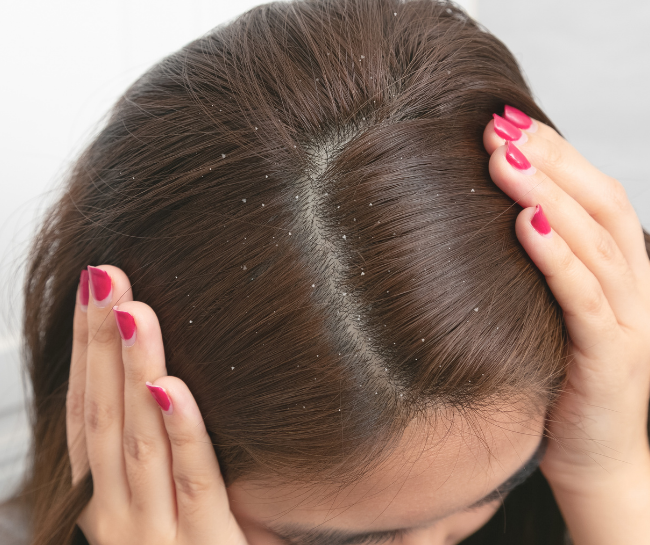Fish oil is a popular dietary supplement that is high in omega-3 fatty acids and other important elements. It is thought to be beneficial to one’s general health. Besides, natural medicine proponents employ fish oil to treat various symptoms, ranging from mental health issues to chronic ailments.
Because omega-3 fatty acids in fish oil are thought to aid in the regulation of the body’s natural activities, proponents of the supplement claim that it may also:
- Boost hair growth
- Strengthen the hair
- Enhance hair follicles
Continue reading to discover more about the advantages of fish oil for hair and how to apply it.
How do fish oil capsules help hair growth
Many people take fish oil capsules to maintain their hair’s health. According to a study, women who consume fish oil with antioxidants have more hair density. The hair follicles benefit from fish oil because it increases blood flow to them. In addition to improving blood flow to the hair follicles, fish oil may also improve the number of nutrients delivered straight to them. The action will enable you to enhance and maximize your hair growth cycle over time.
🐟 Omega-3 fatty acids help with normal brain and eye development.
Is it good to take fish oil pills daily
The amount of fish oil that you should take isn’t predetermined. There are, however, guidelines for overall omega-3 intake, as well as for EPA and DHA. The combined EPA and DHA reference daily intake (RDI) is 250–500 mg. When purchasing fish oil supplements, examine the label to see how much EPA and DHA are included. In most cases, 1,000 mg of fish oil provides roughly 300 mg of EPA and DHA combined.
- Healthy People
The total omega-3 RDI for women is 1,100 mg and 1,600 mg for men. Foods like flax seeds, soybean oil, and walnuts provide some omega-3 in most people’s diets, including ALA.

While your body can convert ALA to EPA and DHA, you won’t be able to produce enough of these fatty acids on your own. You may be deficient in EPA and DHA unless you consume two servings (8 ounces or 224 grams) of oily fish every week.
Adults are generally regarded as safe to take up to 3,000 milligrams of fish oil per day.
- Pregnant Individuals
The essential fatty acids EPA and DHA are required for optimal embryonic development. During the last trimester of pregnancy, DHA accumulates in the brain in particular.
Nevertheless, many pregnant women do not consume enough of these fatty acids to meet the RDI. Taking EPA and DHA supplements throughout pregnancy can help your child during infancy and development. Improved problem-solving skills and a lower risk of asthma and food allergies are among the potential benefits.

During pregnancy, the WHO recommends 300 mg of combined EPA and DHA per day, with 200 mg of DHA. Because most fish oil supplements include more EPA than DHA, look for one with a better DHA ratio.
If you’re pregnant, avoid cod liver oil because it contains a lot of vitamin A. A Vitamin A deficiency can harm a fetus’ growth.
- Children and Infants

For newborns up to one year old, 500 mg of omega-3 is recommended, which gradually rises to normal adult intake by 14 years. Similarly, EPA and DHA requirements differ based on age. So, if you’re looking for a fish oil supplement for your baby or child, make sure it’s designed for their age group to guarantee they get the right quantity of nutrients.
What are the benefits of taking fish oil pills
Are you wondering, “How do fish oil pills help hair growth?” Take a look at these advantages:
- Fish oil pills can help improve the quality of your hair.

If you’re looking for shiny, healthy hair, then fish oil pills may be able to help. The fatty acids in fish oil can help to nourish your hair and make it look its best.
- Fish oil pills can help strengthen your hair.

If you’re struggling with weak or brittle hair, then fish oil pills may be able to help. The fatty acids in fish oil can help to strengthen your hair and make it less likely to break.
- Fish oil pills can help promote hair growth.

If you’re looking to give your hair a little boost, then fish oil pills may be able to help. The fatty acids in fish oil can help to promote hair growth and make your hair appear thicker.
- Fish oil pills can help reduce scalp inflammation.

If you’re struggling with an inflamed scalp, then fish oil pills may be able to help. The anti-inflammatory properties of fish oil can help to reduce scalp inflammation and soothe your skin.
- Fish oil pills can help reduce dandruff.

If you’re struggling with dandruff, then fish oil pills may be able to help. The anti-inflammatory properties of fish oil can help to reduce dandruff and leave your hair looking healthy and flake-free.
- Fish oil pills can help nourish your hair.

If you’re looking for a way to nourish your hair, then fish oil pills may be able to help. The fatty acids in fish oil can help to moisturize your hair and make it look its best.
- Fish oil pills can help protect your hair from damage.

If you’re worried about damaging your hair, then fish oil pills may be able to help. The fatty acids in fish oil can help to protect your hair from damage and keep it looking its best.
- Fish oil pills can help reduce split ends.

If you’re struggling with split ends, then fish oil pills may be able to help. The fatty acids in fish oil can help to seal split ends and prevent further damage to your hair.
- Fish oil pills can help tame frizzy hair.

If you’re struggling with frizzy hair, then fish oil pills may be able to help. The fatty acids in fish oil can help to tame frizzy hair and make it look its best.
- Fish oil pills can help make your hair more manageable.

If you’re struggling with unmanageable hair, then fish oil pills may be able to help. The fatty acids in fish oil can help to make your hair more manageable and easier to style.
- Fish oil pills can help give your hair a healthy glow.

If you’re looking for a way to give your hair a healthy glow, then fish oil pills may be able to help. The fatty acids in fish oil can help to nourish your hair and make it look its best.
How long does it take for fish oil to work for hair
While the omega-3 fatty acids reach your bloodstream three to four hours after you take your supplement, the long-term effects may take longer. This is because fatty acids initially saturate your bloodstream before slowly building up in your tissues, where they are most needed.
DHA and EPA saturate red blood cell membranes within 24 hours, allowing them to circulate throughout your body and to the locations where they are most needed, such as your brain and heart. The amount of time it takes for them to start working is also determined by the amount of EPA and DHA in the fish oil or krill oil, as well as the supplement’s general quality.
🐟 Fish oil might help boost bone density.

It can take up to one month for your blood to achieve ideal levels of EPA and DHA, but it can take up to three months for the fatty acids to saturate more in the brain and heart. Other problems, such as mood swings or pain, can take up to 6 months for the supplements to start working.
So, using omega-3 supplements is not a quick fix but a long-term solution that is more sustainable, and we also encourage you to start incorporating omega-3 into your diet by taking steps toward a healthier lifestyle.
Do you love to work out? Read this blog to know the best vitamins for working out! Click here.

